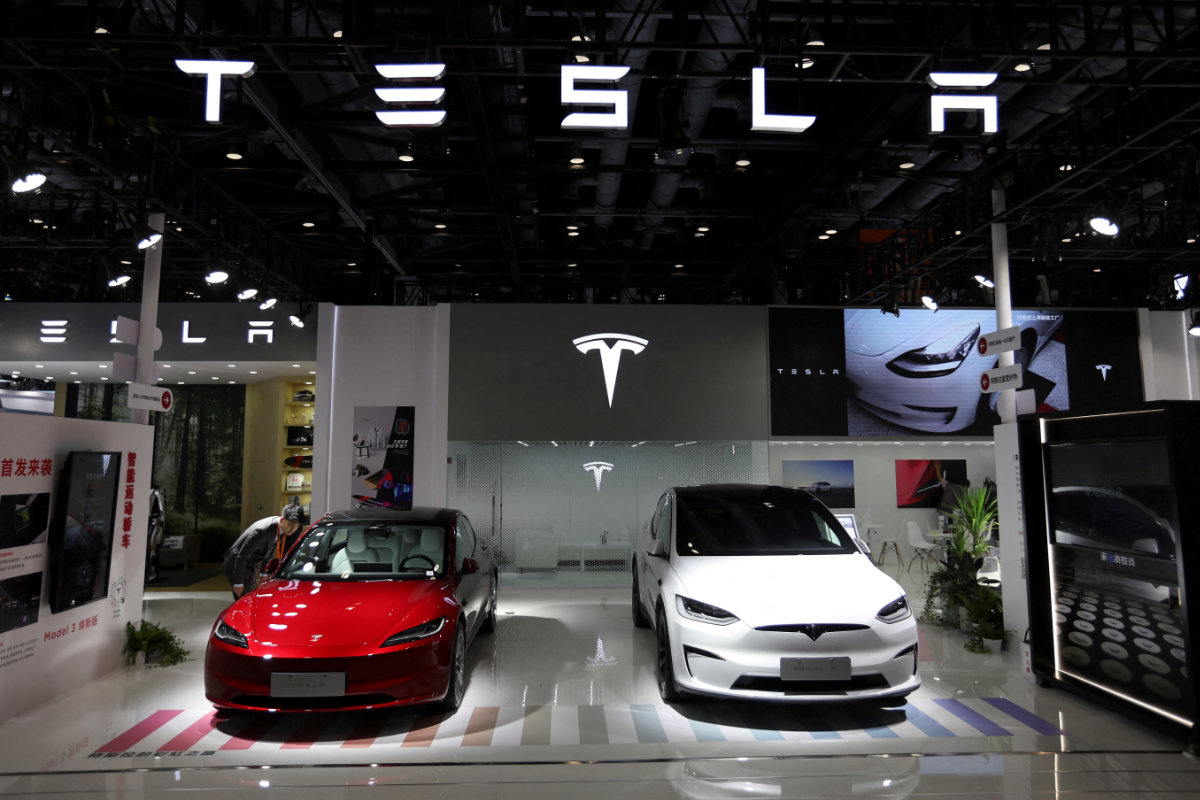DETROIT: Tesla shareholders have voted to restore CEO Elon Musk’s record $44.9 billion pay package that was thrown out by a Delaware judge earlier this year.
Vote totals weren’t immediately announced at Tesla’s annual stockholders’ meeting on Thursday, but the company said shareholders voted for Musk’s compensation plan, which initially was approved by the board and stockholders six years ago.
But the favorable vote doesn’t necessarily mean that Musk will get the all-stock compensation anytime soon. The package is likely to remain tied up in the Delaware Chancery Court and Supreme Court for months as Tesla tries to overturn the rejection.
Tesla last valued the package at $44.9 billion in an April regulatory filing. It was once much as $56 billion but has declined in value ialong with Tesla’s stock, which has dropped about 40 percent in the last 12 months.
Chancellor Kathaleen St. Jude McCormick ruled in January in a shareholder’s lawsuit that Musk essentially controlled the Tesla board when it ratified the package in 2018, and that it failed to fully inform shareholders who approved it the same year.
Tesla has said it would appeal, but asked shareholders to reapprove the package at Thursday’s annual meeting.

Tesla's new Model 3 sedan is displayed next to Model X SUV at the China International Fair for Trade in Services (CIFTIS) in Beijing, China, on September 2, 2023. (REUTERS/File)
A separate issue to move the company’s legal home to Texas to avoid the Delaware courts also was approved, Musk said Thursday at the meeting in Austin, Texas.
“Its incredible,” a jubilant Musk told the crowd gathered at Tesla’s headquarters and large factory in Austin, Texas. “I think we’re not just opening a new chapter for Tesla, we’re starting a new book.”
Legal experts say the issue of Musk’s pay will still be decided in Delaware, largely because Musk’s lawyers have assured McCormick that they won’t try to move the case to Texas.
But they differ on whether the new approval of the pay package will make it easier for Tesla to get it approved.
Charles Elson, a retired professor and founder of the corporate governance center at the University of Delaware, said he doesn’t think the vote will influence McCormick, who issued a decision based on the law.
McCormick’s ruling essentially made the 2018 compensation package a gift to Musk, Elson said, and that would need unanimous shareholder approval, an impossible threshold. The vote, he said, is interesting from a public perception standpoint, but “in my view it does not affect the ruling.”
John Lawrence, a Dallas-based lawyer with Baker Botts who defends corporations against shareholder lawsuits, agreed that the vote doesn’t end the legal dispute and automatically give Musk the stock options. But he says it gives Tesla a strong argument to get the ruling overturned.
He expects Musk and Tesla to argue that shareholders were fully informed before the latest votes, so McCormick should reverse her decision. But the plaintiff in the lawsuit will argue that the vote has no impact and isn’t legally binding, Lawrence said.
The vote, he said, was done under Delaware law and should be considered by the judge.
“This shareholder vote is a strong signal that you now have an absolutely well informed body of shareholders,” he said. “The judge in Delaware still could decide that this doesn’t change a thing about her prior ruling and doesn’t require her to make any different ruling going forward. But I think it definitely gives Tesla and Musk strong ammunition to try to get her to revisit this.”
If the ruling stands, then Musk likely will appeal to the Delaware Supreme Court, Lawrence said.























